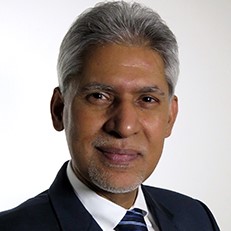Columns
In this together
Volunteers and staff of local community-based organisations will be the key to halting the spread of this pandemic..jpg&w=900&height=601)
Jagan Chapagain
The five-year anniversary of the devastating earthquakes of 2015 is an opportunity to grieve for the thousands of lives that were lost, and to reflect on the progress we have made in helping communities recover. And today, as Nepal works to halt the spread of the Covid-19 pandemic, this anniversary is also a stark reminder of the wide range of risks that communities face.
The morning of 25 April 2015 changed Nepal forever. The statistics are shocking: more than 8,800 people were killed; more than 1.1 million families were affected; more than 880,000 homes were damaged or destroyed. But the true scale of the tragedy can only be appreciated by remembering that every one of those numbers represents a human being: their lives, the people they loved, the roof over their heads, their livelihoods, their hopes and their dreams.
When this disaster happened, I was working as the Asia Pacific Regional Director for the International Federation of Red Cross and Red Crescent Societies (IFRC). I had extensive experience in responding to disasters, and in managing large-scale early recovery operations. But I am also Nepali. I was overwhelmed with shock and grief. Yet, I immediately had to focus on how to help the people who had survived—not only right then, in their desperate pain within the rubble of their communities, but for however long it would take for them to recover and rebuild a safer life.
Who was best placed to help them? This was obviously the Nepal Red Cross Society and its highly trained volunteers, many of whom were living in the very communities that had been destroyed or damaged by the earthquake.
These community-based volunteers and staff were on the ground, providing life-saving support from the outset of the disaster. In all, more than 8,000 volunteers and staff moved straight into action, delivering first aid and distributing relief items to those who needed it most. It became Nepal Red Cross’ largest ever humanitarian operation, reaching hundreds of thousands of people with the support of the IFRC and other International Red Cross and Red Crescent Movement partners.
Now the people of Nepal are facing a new threat: Covid-19. And the volunteers and staff of the Nepal Red Cross Society and other local community-based organisations will be the key to halting the spread of this pandemic.
Disease outbreaks begin and end inside local communities. Every volunteer plays an important role in connecting directly with their communities, in supporting the most vulnerable people, and in providing the information they need to keep themselves and each other safe and healthy.
In Nepal, the past five years have taught us different ways to adapt our response to community needs. These lessons are strengthening our Covid-19 operation, and the same innovative spirit will be critical as we prepare for other complex emergencies, none of which will stop for the pandemic.
The annual monsoon season is fast approaching, bringing with it the threat of flooding, landslides, dengue fever and other health and natural hazards.
Last year more than a hundred people were killed, tens of thousands were forced to leave their homes and many others lost their livelihoods. Red Cross volunteers quickly swung into action, helping people evacuate, distributing essential relief items and assisting with search and rescue.
This year, by necessity, Covid-19 is changing the way we work. But it does not change our focus on helping people who are most vulnerable, regardless of nationality, race, religious beliefs, class, or political opinions. Whether it is an earthquake or a coronavirus, crises do not affect all of us in the same way. In many situations, having a roof over your head or the possibility for physical distancing is a privilege.
This is why we will continue to work from within the communities who need us most, to reduce risks where possible, to be prepared to respond to emergencies and to support long-term recovery. We are incredibly proud of and grateful for, the dedication and compassion shown by all humanitarian volunteers during the 2015 earthquake response and recovery efforts and other crises in Nepal, and the trust that they have built with their communities. In these extraordinary times, they are needed more than ever.
***
What do you think?
Dear reader, we’d like to hear from you. We regularly publish letters to the editor on contemporary issues or direct responses to something the Post has recently published. Please send your letters to [email protected] with "Letter to the Editor" in the subject line. Please include your name, location, and a contact address so one of our editors can reach out to you.




 9.6°C Kathmandu
9.6°C Kathmandu















